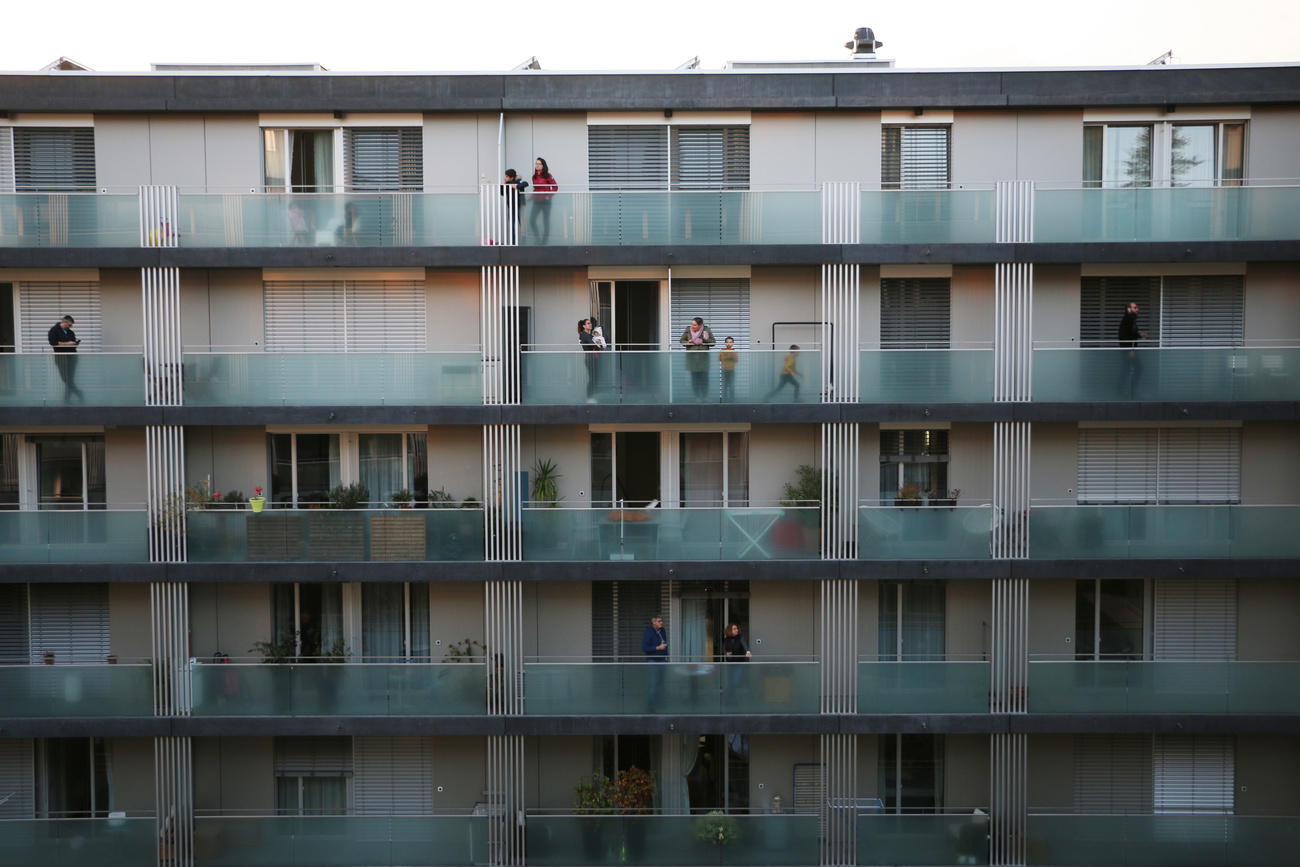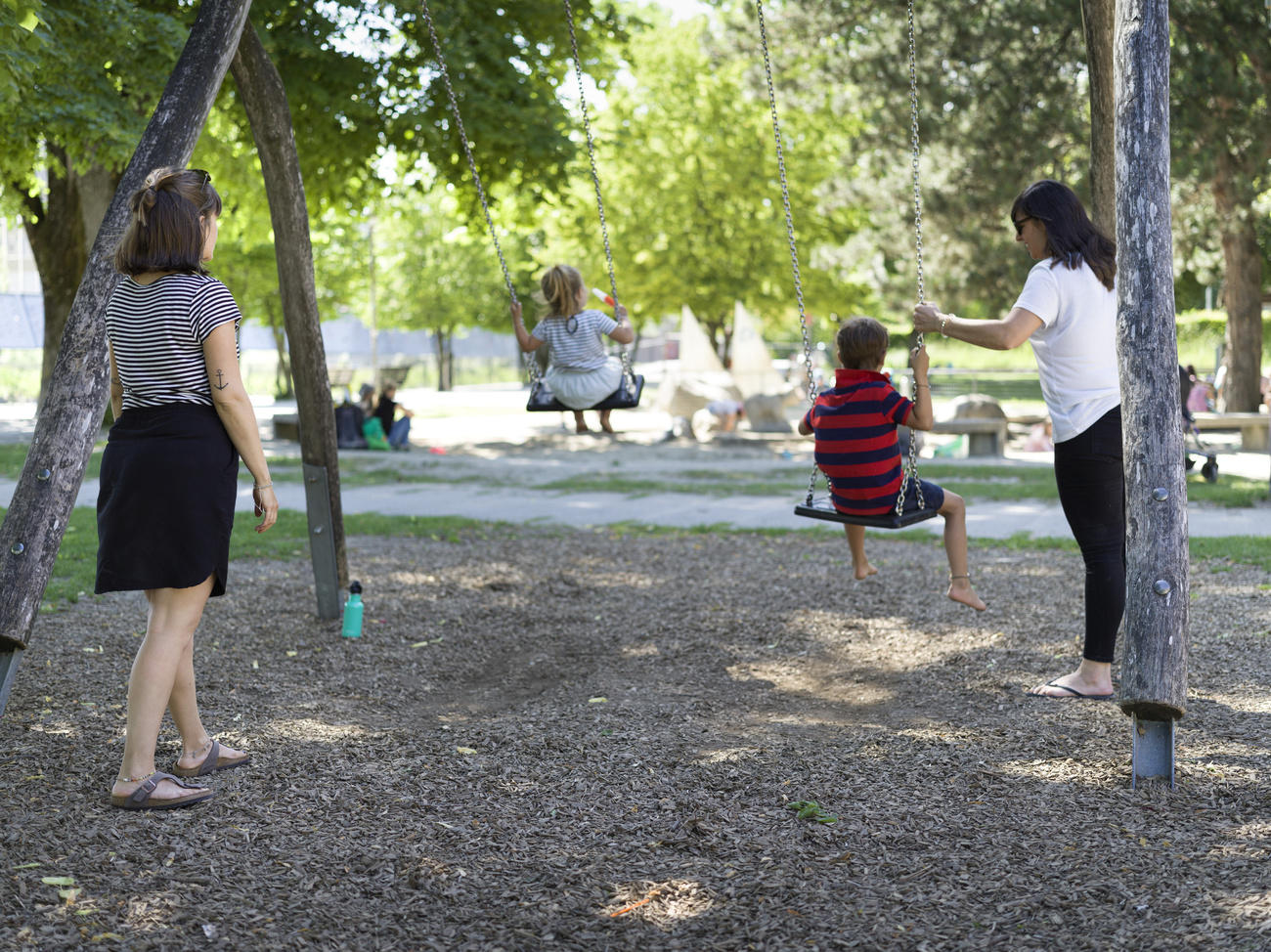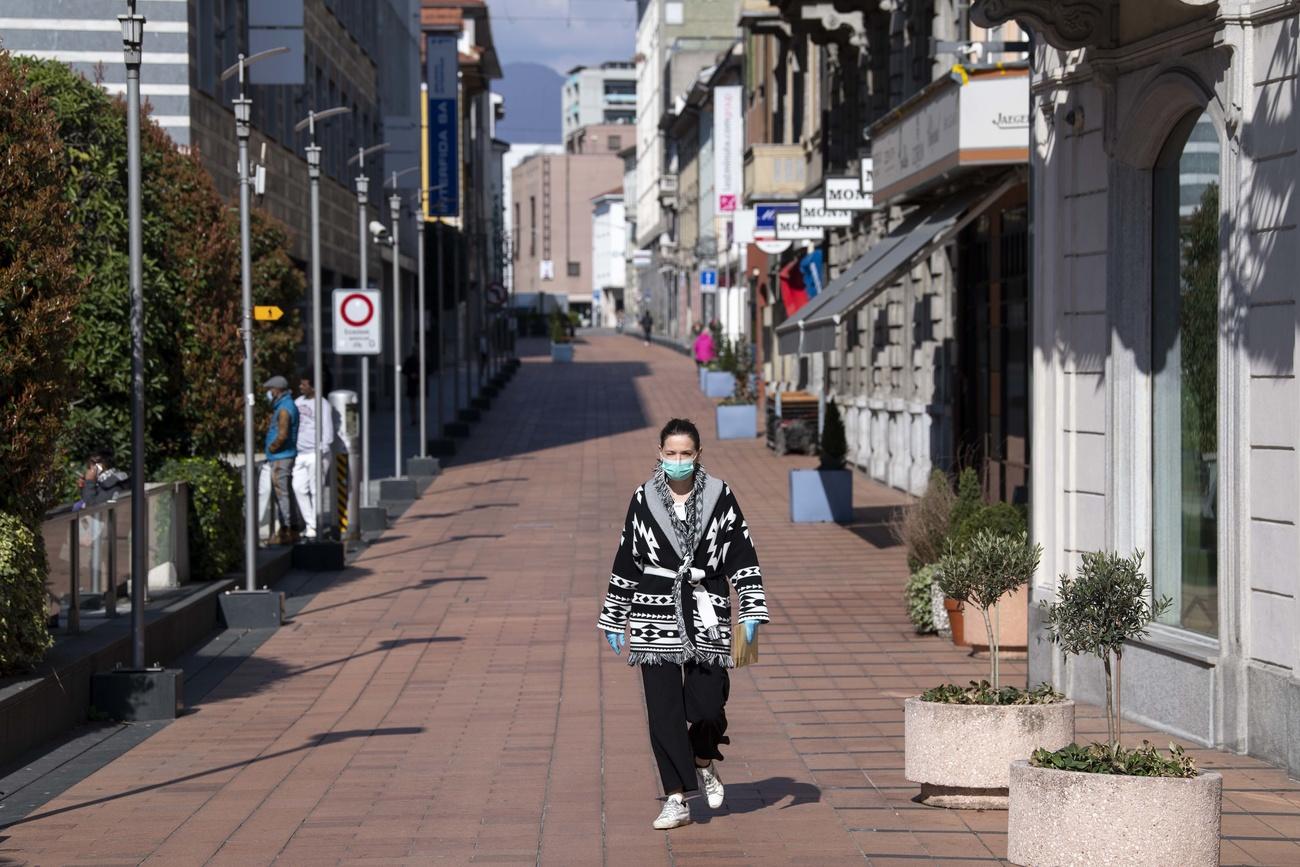Coronavirus: Why staying home is merely a recommendation in Switzerland

Readers of swissinfo.ch have many questions about the way the Swiss are handling the pandemic. In this first collection of answers, we tackle social distancing measures and how the population is taking them onboard.
Switzerland has progressively tightened measures aimed at limiting the spread of Covid-19 across the country. The government has banned gatherings of more than five people in public places and advised everyone to stay at home. But as readers point out, the measures have left some room for interpretation.
The government has urged all residents, especially those 65 and older or who are ill, to stay at home. But they can still leave the house to go to work – if telework is not possible – see the doctor, go to the pharmacy, buy groceries or help another person.

More
How social distancing is taking hold in Switzerland
Federal authorities have stopped short of making confinement an obligation as neighbouring countries like France and Italy have done. People in France for example, need to carry a document attesting to their reasons for leaving the house or face hefty fines.
“As we have seen in other countries, people do not comply well with decisions taken at the top that are deemed too harsh,” Alain Berset, interior minister responsible for health matters, told a press conference.
“This is a very Swiss approach,” he added. “The government doesn’t impose restrictions that people can’t understand.”
Berset instead appealed to people’s spirit of citizenship and sense of responsibility to take the measures seriously.
In a survey carried out by the Sotomo institute and published on March 24, the vast majority of people polled said they had gone out in the previous week – though most said they had come into close contact with fewer than five people. Just a quarter of people 65 and older said they had adhered fully to the measures.
Getting out for some fresh air is not forbidden. The head of infectious diseases at the Federal Office of Public Health, Daniel Koch, suggested that people go for a walk on their own or with members of the same household. Maintaining a distance of two metres from others is recommended.
Parents can take their children out for a bicycle ride. But kids should not play in groups larger than five, the public health office advises. The elderly should avoid all contact with children.
The federal government has ordered all schools to remain closed until at least April 19. But it has asked crèches to stay open or offer parents alternative group childcare solutions. This is partly to avoid a situation where people over 65 – who are at higher risk of becoming seriously ill if they are infected with the coronavirus – end up babysitting grandchildren.
An additional consideration is parents working in essential services, such as healthcare, who cannot look after their kids at home. Some crèches have decided to prioritize places for these children.
But the situation also varies across cantons. Some daycare centres have closed following decisions by municipal or cantonal authorities, or simply for lack of demand – many parents are choosing to keep their children at home. Crèches and other childcare facilities that remain open, like in canton BernExternal link, must limit groups of children, usually to a maximum of five.
The federal government is advising people over 65 or who are ill to stay at home. Daniel Koch of the public health office even suggested that the elderly should not be going to the supermarket but should instead seek help – from relatives or neighbours, for example – to get their groceries.

More
Swiss Solidarity launches coronavirus support campaign
In canton Ticino, which has been especially hard-hit by the virus, retail giant Migros has said it will not allow people aged 65 or older to enter its supermarkets, according to media reportsExternal link.
But the recommendation to avoid supermarkets does not mean people should not venture out. Pro SenectuteExternal link, Switzerland’s leading organization for the elderly, suggests to those living in rural areas to visit farmers’ stands, which it says tend to be less frequented than shops in the city.
Across the country, random acts of kindness as well as organized support groups have sprung up to help those who are especially at risk. Pro Senectute offers a meal-delivery service plus plenty of advice on how those confined at home can connect with people in their community, whether for help with errands or to maintain social contact virtually or by phone.
Facebook groups and apps such as Five upExternal link, partly financed by the Swiss Red Cross, let volunteers connect with people looking for help in their area. Simply posting a flyer on an apartment building notice board has also been a popular way for younger people to let their elderly neighbours know they can lend a helping hand.
What questions do you have about coronavirus and Switzerland? Just fill out the form below and we’ll try and answer them.

In compliance with the JTI standards
More: SWI swissinfo.ch certified by the Journalism Trust Initiative













You can find an overview of ongoing debates with our journalists here . Please join us!
If you want to start a conversation about a topic raised in this article or want to report factual errors, email us at english@swissinfo.ch.